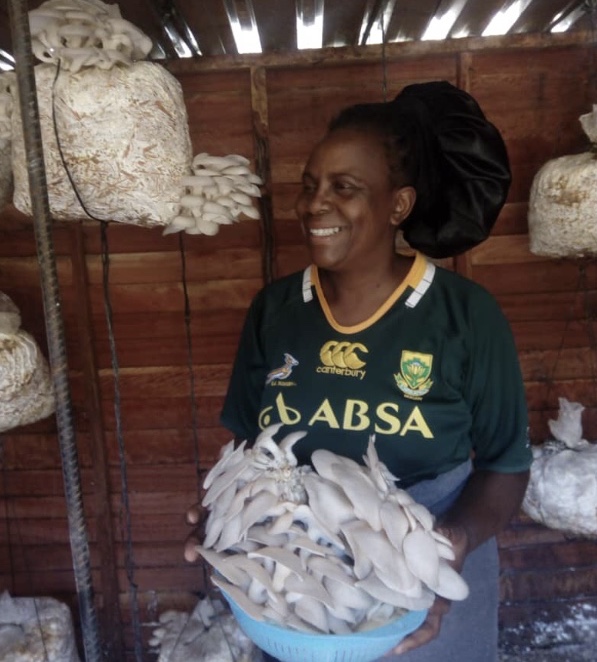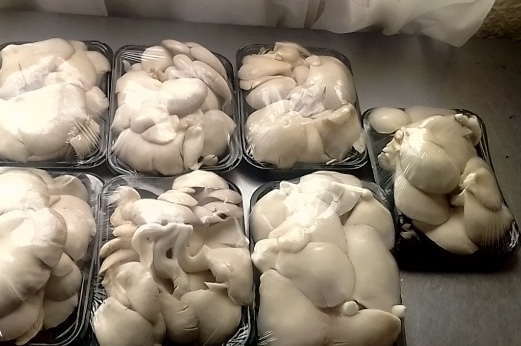BY NDUMISO TSHUMA
Thandazile Gumede Magunje, a Njube resident in Bulawayo has recently become known for her thriving oyster mushroom farming business.
Magunje, who runs the business with the assistance of her husband, children, and additional workers, revealed that her path to mushroom farming began after losing her job as a dental nurse due to the challenges brought about by the COVID-19 pandemic.
She said that fortunately, at that time, she received financial aid from the World Food Programme and DanChurchAid (DCA) in her community. She added that this support led her to venture into mushroom farming after recognising a significant market opportunity. With seed funding from DCA, Magunje elevated her operations from basic plastic structures to wooden cabins and even established a solar dryer for mushroom processing.

“I am a former dental nurse and had been working for about 10 years when COVID-19 hit and I got retrenched. Fortunately, the World Food Programme and DanChurchAid (DCA) provided aid in my neighbourhood, and I was one of the lucky people who received financial assistance. Eventually, they proceeded to an urban resilience programme. That’s when I chose mushroom farming because I have a huge passion for farming and discovered a significant market gap in mushroom farming. I received seed funding after my training from DCA, and I have been growing mushrooms since then. I went from building plastic houses to grow my mushrooms to now having wooden cabins,” said Magunje.
Magunje said that she even established a solar dryer for mushroom processing and that local community members come to use the dryer to dry mushrooms and other vegetables.
“I now have a solar dryer to dry my mushrooms. I now aspire even to do biltong. I do a lot of vegetable drying as well. In my community, people now come to dry their mushrooms using this solar dryer, and people from DCA also come and use this mushroom dryer. For extra services, other people come with a little money to dry their vegetables,” said Magunje.
Magunje mentioned that she has extended her expertise as a professional trainer and offers mushroom farming production lessons to individuals from various cities such as Bulawayo, Chiredzi, Harare, and Gweru. Participants receive certificates upon completion of the training. Furthermore, Magunje supplies essential inputs like seed cotton, housing materials, and hydrated lime to support the growth of her business.
“I am also a professional trainer. I train people on how to do mushroom farming from Bulawayo, Chiredzi, Harare, Gweru, and other provinces. We give certificates to those we have trained, and we are now a trusted company called Treacewell Enterprises. We teach mushroom production in schools, churches, and other institutions that want to learn mushroom production,” said Magunje.
Magunje added that she offers training sessions on mushroom production for a fee of US$20. These sessions include both theoretical and practical components, ensuring participants leave with valuable skills and notes for future reference. She also guides packaging techniques to enhance the presentation of their products.
Furthermore, Magunje stated that she now also supplies essential inputs like seed cotton, housing materials, and hydrated lime to support the growth of her business. Her business has expanded to such an extent that her husband left his job to join her full-time in managing the company. They have also engaged additional workers for planting and delivery tasks, contributing to job creation and community development. Magunje expressed her commitment to giving back to her community and supporting others in their agricultural pursuits.
“We even contract other people to come and work for us to plant and deliver goods so that we can create more employment in our community. Our fresh dried mushrooms start from US$1 each,” said Magunje.

